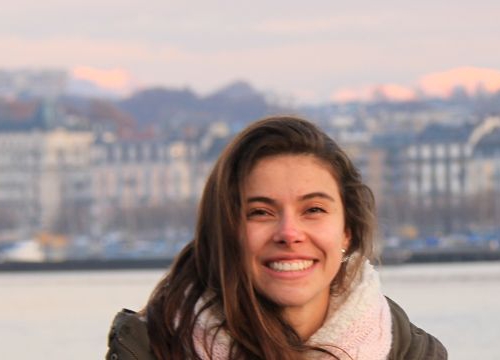MAS in Transitional Justice, Human Rights and the Rule of Law: What our Students Say
29 January 2019
In this interview, Luisa Fernanda Gómez Betancur, currently enrolled in our Master of Advanced Studies in Transitional Justice, Human Rights and the Rule of Law (MTJ), tells us about the programme and life in Geneva.
About Me
I’m Luisa Fernanda and am from Manizales, Colombia, a city in the well-known coffee region in the Andean mountain chain. I started my career in law at the Universidad de Caldas and later on, I pursued specialized studies in constitutional law at the Universidad Nacional de Colombia.
Before coming to Geneva, I worked for six years at the Constitutional Court of Colombia. During my time as a public servant, I notably dealt with cases related to environmental justice, the human rights of indigenous communities as well as the victims of the internal armed conflict.
All my life I’ve been fascinated with movement, and that might be the reason why I have danced since I was seven years old. It has been my happy place since then: it is my way to meditate in motion. In addition, I’m also a big fan of travelling.
Why did you choose the MTJ at the Geneva Academy?
Colombia is pursuing a transition to a post-conflict setting after large-scale political violence. The complexities of this kind of processes deal not only with legal dimensions but also social, political and cultural variables. The MTJ at Geneva Academy offers me an interdisciplinary platform to reflect in-depth upon tough questions about justice, peace or truth that form part of the transitional justice framework and whose understanding has critical implications for people’s lives in my country and in others regions as well.
What are you Enjoying in your Studies?
I find fascinating to be part of a classroom with 27 fellow students from 25 different countries and being able to share different understandings and values of the world. In a way, every day the Geneva Academy, is a celebration of diversity.
How is the Teaching?
One of the elements that create a holistic focus of the programme is the teaching. Professors at the Geneva Academy are not just rigorous from an academic perspective, but their experience and ‘on the ground’ exposure create an environment in which conversations, inquiries and discussions are granted an immense value; and as if that wasn’t enough, Geneva is by itself a huge classroom. Cultural and academic events offered in the city are limitless, and these offer an opportunity to further the learning experience.
What are you Planning to do Next?
Colombia is going through a historical transition full of hope, but also very fragile. Undoubtedly, I would like to be part of this process and contribute by using the academic and practical tools learned here which will allow me to face the complexity of this transitional process.
Why did you Choose to be Photographed in front of Geneva Lake?
Public spaces in cities are shrinking and becoming more scarce. The Geneva Lake is a living example of public land that is valued collectively. The lake represents to me that powerful idea of communal goods.









